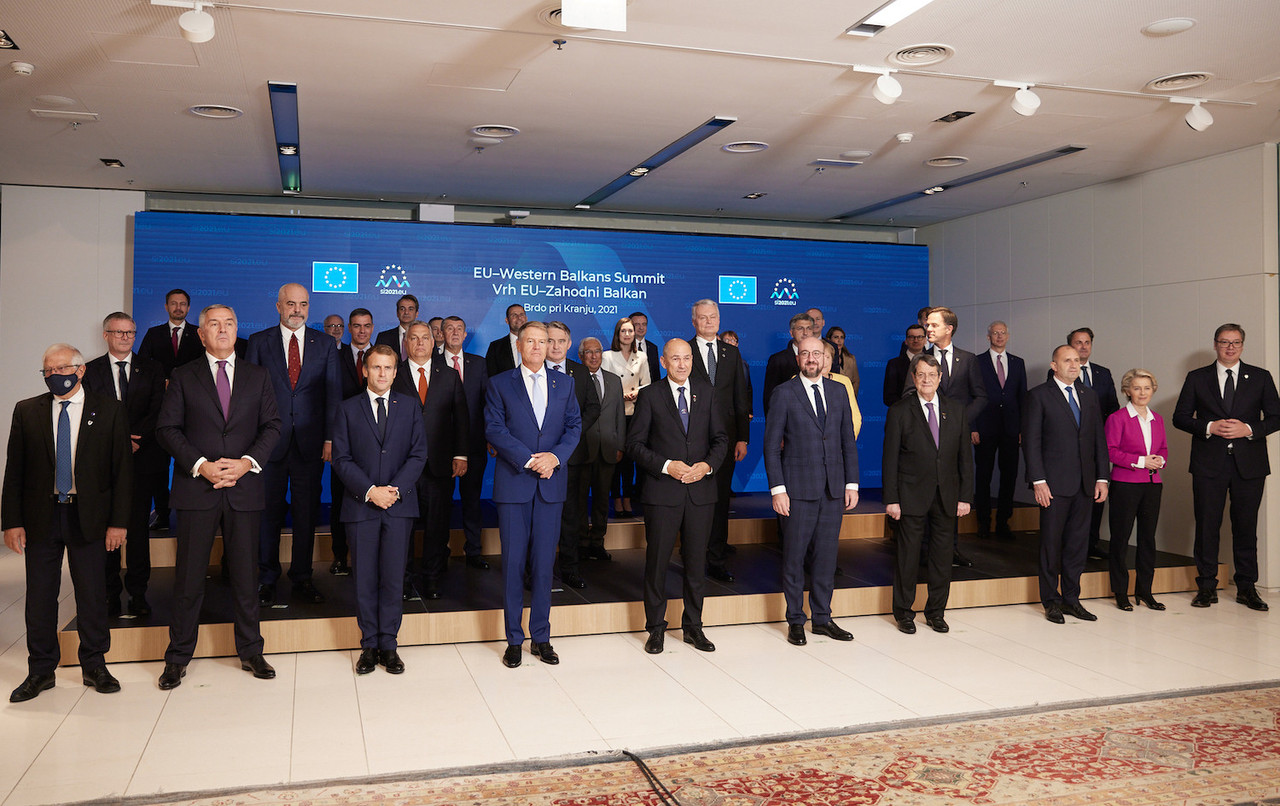Leaders of EU countries and the six Western Balkan partners--Albania, Bosnia and Herzegovina, Serbia, Montenegro, North Macedonia and Kosovo--met on 6 October for a joint summit hosted under the Slovenian council presidency.
Accession negotiations are currently ongoing with Serbia and Montenegro. Kosovo and Bosnia and Herzegovina are considered potential candidate countries. Albania and North Macedonia are candidate countries but accession negotiations have not yet opened.
“There are conditions that must be respected on rule of law, human rights,” Bettel said arriving at the summit on Wednesday. “There are other, bigger countries that are present and they cannot be the hope of these countries. The European hope is the right answer,” he said.
Russia’s influence in the region is seen as resurgent with Serbia’s president, Aleksandar Vučić, describing president Vladimir Putin as the “kingmaker” on energy at the summit on Wednesday. “Residents of Serbia are rational, they want to be a part of the world, a part of the European Union, but Serbian residents do not want to spoil relations with Russia and China,” he said.
While EU leaders reaffirmed their commitment for the six Western Balkan countries to join the union, they held off full negotiations with Albania and North Macedonia and didn’t commit to a firm timeline for any of the countries to join the 27-member group.
"The Western Balkans are part of the same Europe as the European Union. The EU is not complete without them," EU Commission President Ursula von der Leyen said, pledging to advance the accession process during her tenure.
“We cannot disappoint them,” Bettel said about the progress of accession talks.
But the national governments of the EU27 can veto opening negotiations. Bulgaria has done so in the case of Macedonia. Slovakia, Romania, Greece, Cyprus and Spain don’t recognise Kosovo as an independent country.
Hungary’s prime minister Viktor Orbán and Serbia’s Ana Brnabić in September meanwhile cemented cordial relations with a strategic partnership agreement. Orbán has called for immediate EU membership for Serbia amid criticism from other member countries that Serbia has not fulfilled conditions on rule of law, press freedom, and freedom of expression, among other criteria.
Hungary itself is facing so-called Article 7 proceedings over rule of law violations, corruption, minority rights infringement and curbs on freedom of expression, triggered by the European Parliament in 2018. The disciplinary procedure can result in sanctions and the country losing its voting rights in Brussels.
“Our rules aren’t great,” Bettel said about the EU’s ability to enforce rule of law within the bloc. “We have homework to do internally,” he said, adding, however, that the Western Balkans should not become a victim of this situation.
“It’s often a powder keg,” he said of the region. “We must help to de-escalate and expand the European peace project here.”
To help achieve this goal, EU leaders agreed to spend €9bn on an economic and investment plan together with guidelines to implement a green agenda in the Western Balkans.
“The plan can spur the region’s long-term, green socio-economic recovery and competitiveness, support its green and digital transition, foster sustainable connectivity, regional integration, trade, thereby also strengthening cooperation and convergence with the EU, including with the EU’s climate-related goals,” a published after the summit said.
“EU support will continue to be linked to tangible progress on the rule of law and socio- economic reforms, as well as to partners’ adherence to European values, rules and standards,” the document said.
